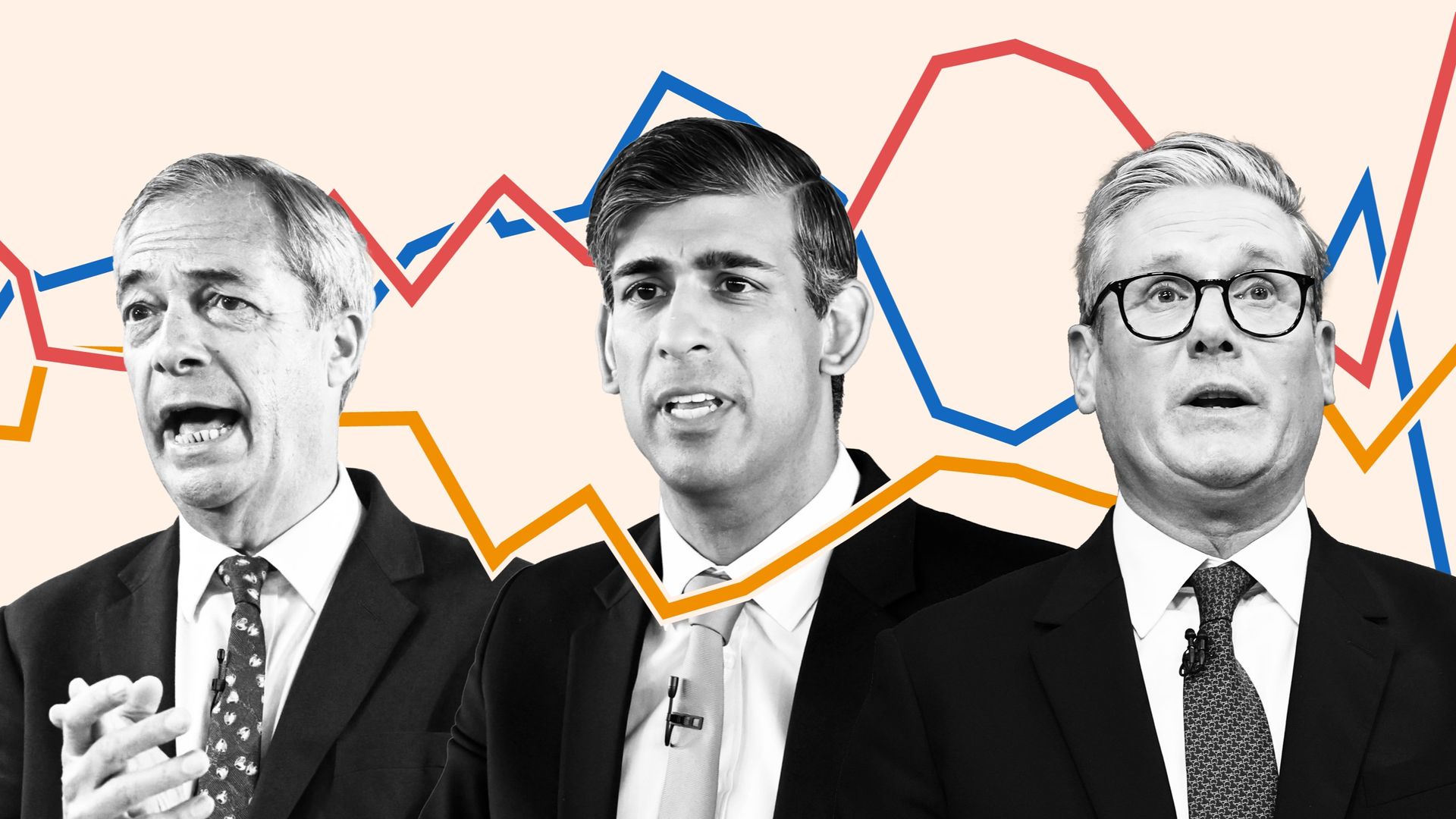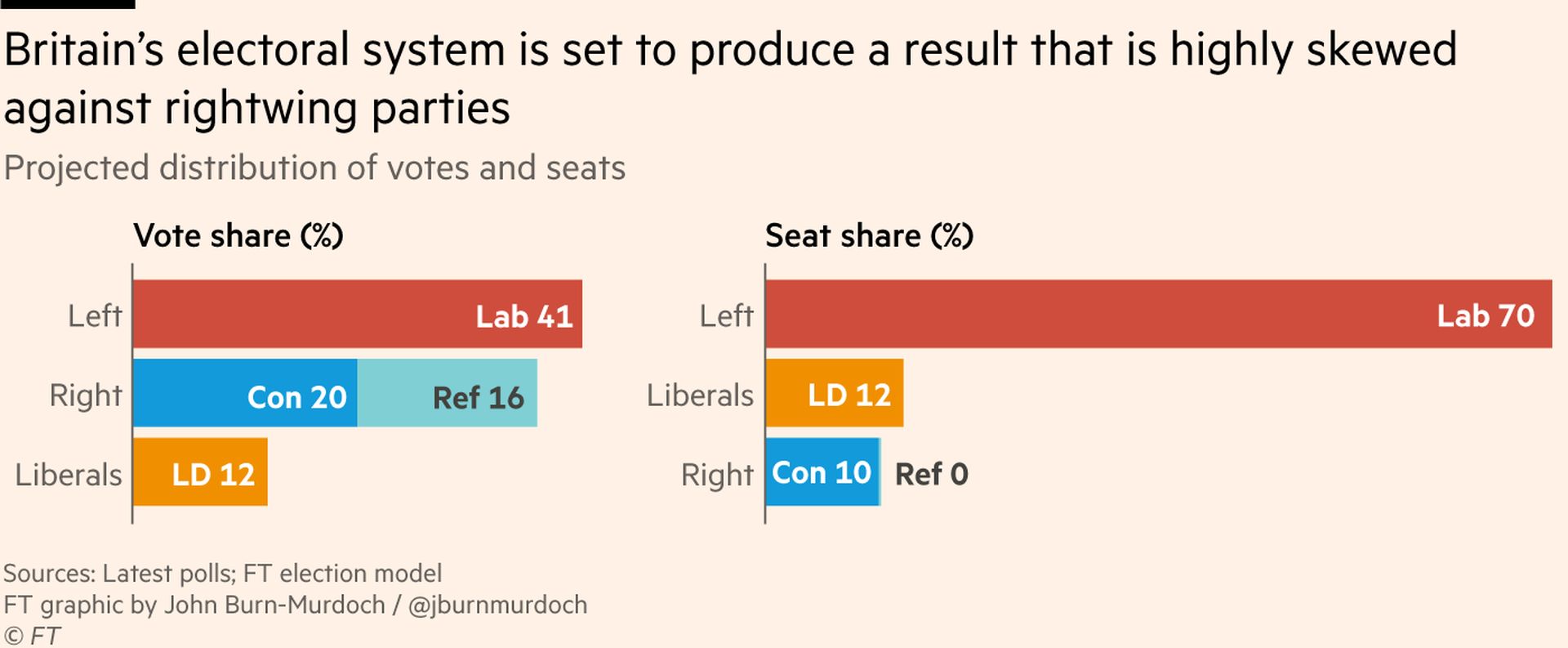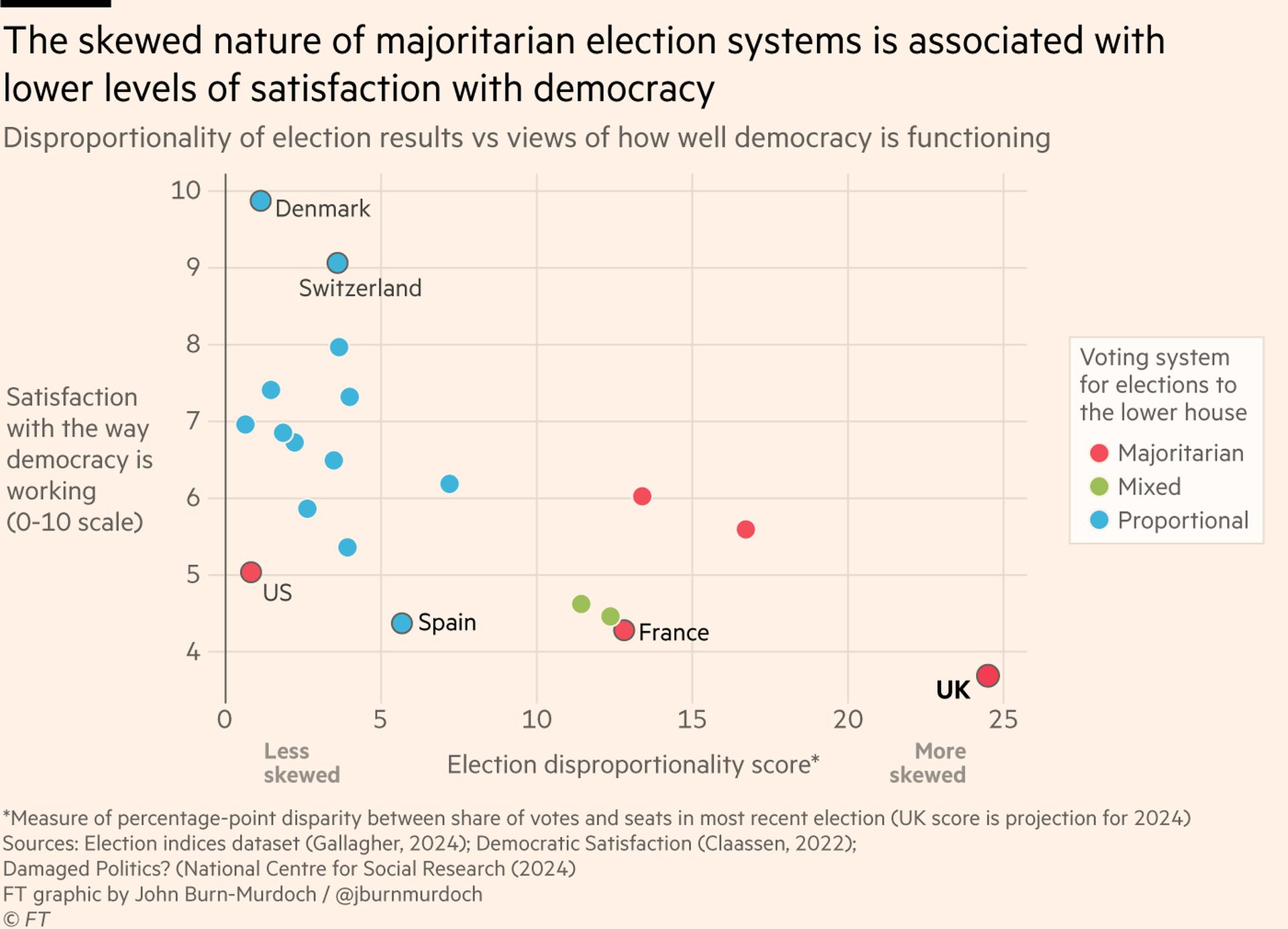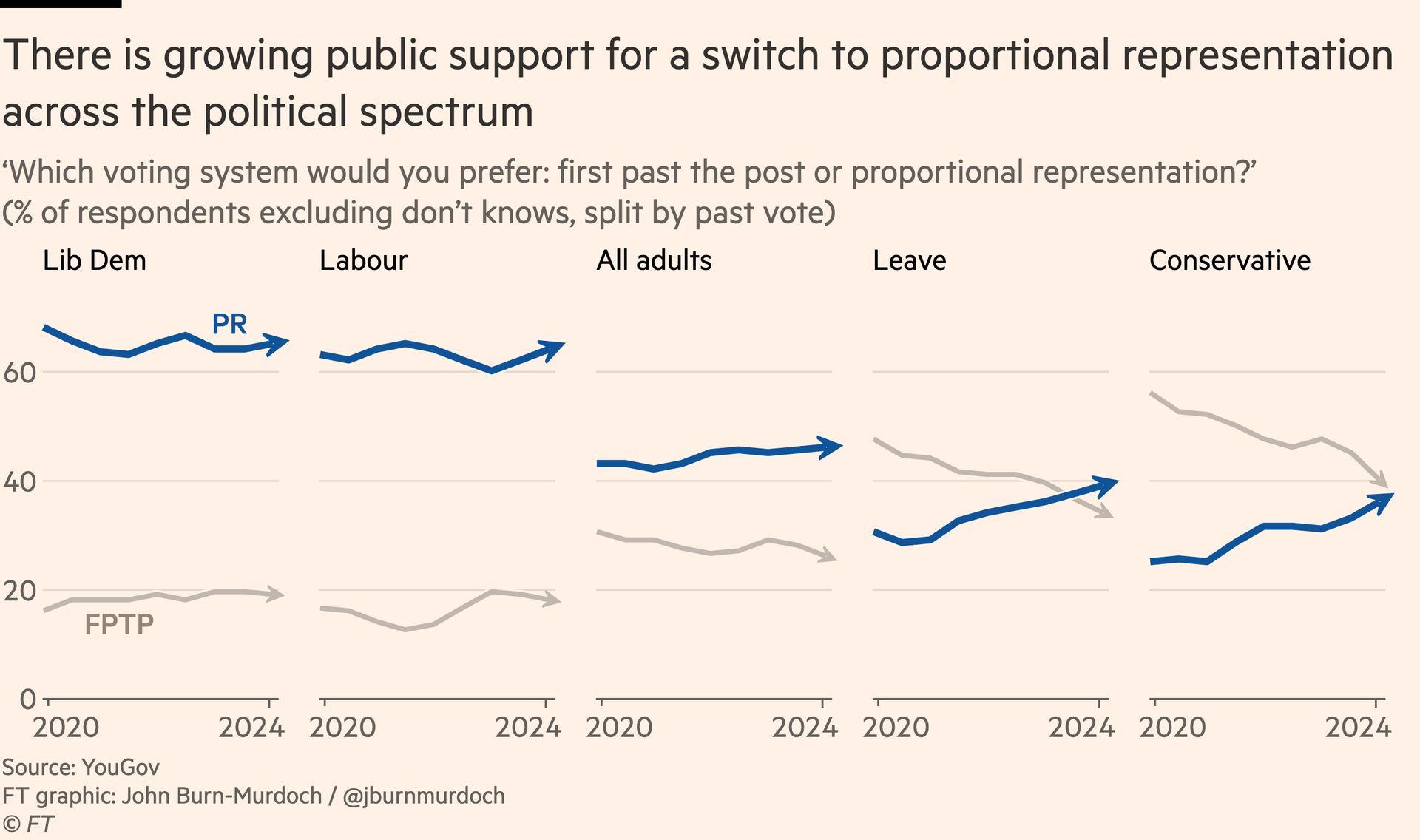This is part of a Data Points series on the UK election
There is a distinct possibility that the UK general election on July 4 produces the following outcome. Sir Keir Starmer’s Labour party wins a record 450 seats and a huge majority on a lower share of the vote than Jeremy Corbyn’s Labour achieved in 2017. Meanwhile, the Liberal Democrats win the second-largest number of seats, becoming the official opposition, despite finishing fourth on vote share behind both the Conservatives and Nigel Farage’s Reform UK.
If that sounds far-fetched, it is well within the range of current polling. Even with a less extreme result, it is likely that the Lib Dems could win around 50 seats on a lower share of the vote than Reform, which ends up with a few seats at best.
These are just a selection of the distortions routinely produced by the first-past-the-post electoral system, in which numbers of votes and the seats they secure are only tenuously related. Among many quirks, it favours parties with support concentrated in some seats over those with a more even spread of votes — unless those parties are large, in which case it’s the other way round. Simple, right?
This has always been noted by critics of FPTP. But with British politics showing signs of fracturing into a multi-party democracy, as levels of attachment to the major parties decline, it will have ever more dramatic and arbitrary impacts and become harder to wave away.
On current polling,
For decades the third UK-wide party was the big loser from the mismatch between votes and seats, including notoriously the SDP-Liberal Alliance in 1983, taking only 23 seats on a vote share about 2 percentage points behind Labour, which garnered 209. But it is noteworthy that this time those who lose out will be overwhelmingly on the right. The Conservatives and Reform are on course to win a combined 37 per cent of votes, but perhaps as little as 10 per cent of seats in the Commons.
You could scarcely come up with a better recipe for fuelling the advance of Faragism: millions of voters with a justifiable sense of having been screwed by the system, while their figureheads rail against power instead of having to face the choices that come with wielding it — a position populists have always preferred.
Defenders of FPTP argue that, for all its flaws, this system ensures greater political stability than the alternatives, moderating the influence of extreme parties. The last decade of British politics demonstrates otherwise: historic levels of political turmoil whose trigger was a referendum proposed in what we can now see was a spectacularly unsuccessful attempt to fend off the radical right.
This pattern holds overseas, with further analysis by Difford finding that parties, leaders and ministers all stay in power longer under proportional representation voting systems than FPTP, allowing governments to implement precisely the kind of long-term plans Britain needs to get out of its slump.
Measure PR Non-PR Average tenure of prime minister (years) 5.6 4.1 Average tenure of ministers (years) 3.1 2.1 Average time parties spend in government (years) 11.4 7.5 Source: Dylan Difford / Make Votes Matter
There is a chance that this year’s result could finally put electoral reform back on the table in the UK (a watered-down proposal failed by a large margin in the 2011 referendum on whether to adopt the alternative vote system).
With first past the post disadvantaging the right rather than the centre-left for the first time, we could see a sudden interest in change on the other side of the political divide. Liberal parties have long advocated a shift to proportional representation, with Labour split on the issue, but for the first time earlier this year a plurality of former Leave voters backed the idea of change. Conservative voters are heading in the same direction.
The temptation for the left, as huge beneficiaries of the distortions at this election, will be to stick with a system that on this occasion will have suppressed the power of the right. But they could be the victims next time.
The make-up of Britain’s parliament should reflect the views of Britain’s voters, not the peculiarities of its electoral system. With the status quo doing nobody any favours, politicians of all stripes should put country before party.
john.burn-murdoch@ft.com, @jburnmurdoch





